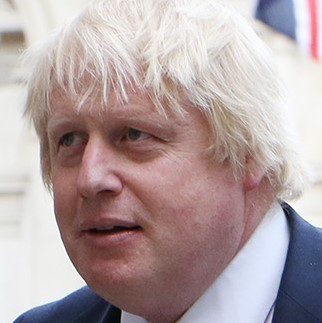Huawei Ban in UK Still on the Table
UK leader Boris Johnson links the use of Huawei to security concerns, raising the prospect of a partial or full ban on the Chinese vendor.

Boris Johnson, the UK's prime minister, has indicated that a decision to ban Huawei from the UK's 5G networks is still an option because of security concerns relating mainly to its "Five Eyes" alliance with the US and other countries.
In widely reported comments, Johnson said: "I don't want this country to be hostile to investment from overseas. On the other hand, we cannot prejudice our vital national security interests nor can we prejudice our ability to cooperate with other Five Eyes security partners. That will be the key criterion that informs our decision about Huawei."
Johnson is reported to have made his comments during a Wednesday afternoon meeting of NATO leaders in the UK, days after US President Donald Trump had arrived in the country.
US authorities have been leaning on other governments to exclude the Chinese equipment vendor from their 5G markets, arguing its products could include malware that allows China's military to spy on countries or bring down critical infrastructure.
Huawei has repeatedly denied the charge that it colludes with the Chinese state, and its founder, Ren Zhengfei, has previously said he would rather shut down the business than share data with Chinese authorities.
The UK is under more pressure from the Trump administration than other European countries because it is a member of Five Eyes, an intelligence-sharing club of countries that also includes Australia, Canada, New Zealand and the US.
Australia has already banned Huawei from selling 5G products to its service providers, while New Zealand last year warned mobile operator Spark off using the Chinese vendor to build a 5G network. Spark recently began rolling out a 5G network in partnership with Finland's Nokia.
UK operators, including BT and Vodafone, have lobbied in favor of Huawei, saying an official ban would prove costly and disruptive. Both have relied heavily on the Chinese vendor in their 4G networks and Vodafone says it would have to replace that equipment to guarantee compatibility with 5G products from a different supplier in the event of an outright ban.
Restrictions would also affect Three, the smallest of the UK's four network operators, which has named Huawei as its sole supplier of 5G radio access network products. O2, the remaining player, is understood to be far less reliant on the Chinese vendor.
Under a potential compromise, UK government authorities could seek to exclude Huawei from the intelligent "core" of the network but allow it to continue providing radio access network equipment. Neither Vodafone nor Three uses Huawei in the core, while BT has been removing Huawei's products from the core of the mobile network it acquired in 2016 with its acquisition of EE, previously a joint venture between France's Orange and Germany's Deutsche Telekom.
Want to know more about 5G? Check out our dedicated 5G content channel here on
Light Reading.
Scott Petty, the chief technology officer of Vodafone UK, told Light Reading at a recent press event that restrictions on using Huawei in the core, but not the radio, would strike "the right balance between innovation and security."
US hawks seem unlikely to be happy with that measure. During an interview with Light Reading earlier this year, Arun Bansal, the head of Ericsson's business for Europe and Latin America, said the traditional boundary between core and radio is blurring with the shift to 5G, which allows intelligence to be moved closer to basestations.
Further complicating the UK decision is the country's looming exit from the European Union. The prospect of a good post-Brexit trade deal with the US could vanish if the UK resists US pressure to ban Huawei. On the other hand, any restrictions would risk upsetting China as the UK looks to forge trading alliances with other countries.
Responding to the latest reports, a Huawei spokesperson said: "We're confident the UK government will continue to take an objective, evidence-based approach to cybersecurity."
"Our customers trust us because we supply the kind of secure, resilient systems called for by the NATO Declaration and will continue working with them to build innovative new networks," added the spokesperson.
Related posts:
— Iain Morris, International Editor, Light Reading
About the Author(s)
You May Also Like




_International_Software_Products.jpeg?width=300&auto=webp&quality=80&disable=upscale)







